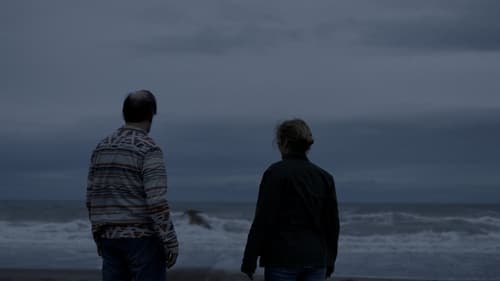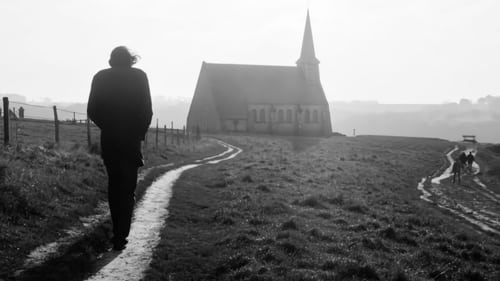
Director of Photography
Renata seeks refuge in the house of Virginia, her sister. Virginia lives a quiet life with her son Lucio in a provincial city and the only thing that seems to worry her are the ants that have invaded her home. Renata has nowhere to go. Virginia wants to help her and receives her; But the days pass and the drama of daily life begins to reveal the link between them, the pain of recognizing and rediscovering each other in a past that returns and takes strange forms.

Producer
Renata seeks refuge in the house of Virginia, her sister. Virginia lives a quiet life with her son Lucio in a provincial city and the only thing that seems to worry her are the ants that have invaded her home. Renata has nowhere to go. Virginia wants to help her and receives her; But the days pass and the drama of daily life begins to reveal the link between them, the pain of recognizing and rediscovering each other in a past that returns and takes strange forms.

Director of Photography
Greta e Bruno, seu marido, lutam com a dor após o desaparecimento de seu filho. Sua amiga Sina viaja para a costa para ajudá-los a vender sua casa de verão.

Director of Photography
The journey back home has been a recurring narrative ever since humans started to tell stories. Because going back to one’s origins is always related to identity, a dilemma that never ceases to hit close to home

Director of Photography
Agatha and Leonidas have a somewhat absorbing mother-child relationship: Agatha never fell in love again, and Leonidas doesn't know what love is. From one day to the next, Agatha wakes up in the body of a seven-year-old girl.

Producer
A couple builds a space to live. When it is finished, before inhabiting it, they invite a group of people to visit it. The invited people circulate individually through this new and empty space. They look, they walk, they talk. The film tries to rescue the effect of that experience in each one of them. So the space itself becomes an experience. What will they leave of themselves? What will they take? What will they show of the human? What is a house? What do you do with the past? The series of people who briefly inhabit that place, recently built, still free of all traces, could be thought of as infinite. The space fills and empties. The residual of that transit remains: a luminous fragility.

Director of Photography
A couple builds a space to live. When it is finished, before inhabiting it, they invite a group of people to visit it. The invited people circulate individually through this new and empty space. They look, they walk, they talk. The film tries to rescue the effect of that experience in each one of them. So the space itself becomes an experience. What will they leave of themselves? What will they take? What will they show of the human? What is a house? What do you do with the past? The series of people who briefly inhabit that place, recently built, still free of all traces, could be thought of as infinite. The space fills and empties. The residual of that transit remains: a luminous fragility.

Camera Operator
"Several times a day, for many months, I went out to the terrace of my house to look at the terrace next door, which is the terrace of a nursing home. I went out as soon as I got up and before going to bed, as in a ritual. And soon, over the course of the weeks, I went out several times a day to look at that space, a window between two concrete blocks, a mysterious door, the light on the ceilings." (Gustavo Fontán)

Director of Photography
In shades of gray, the calm, static shots show young female visitors to a public hospital in Argentina. This is the place where teenage girls have to make a decision about the new life growing inside them. A few of them have, at a very young age indeed, already had children. For others, the idea of a future as a mother is new and terrifying. In many cases, though, having an abortion isn’t a decision to be taken for granted. Some of the girls have learned from childhood that getting pregnant is your own fault, and you have to accept the consequences. What they know about abortion comes from horror stories of clandestine practices in backstreet clinics. The hospital gynecologists and other staff, who can be heard but not seen, ask the girls about their well-being, their relationship, their family ties, and how they see the future—with or without a child. In these intimate and non-judgmental conversations, the girls respond with powerful candor in their most vulnerable moments.

Director of Photography
Micaela and her mother Yurquina begin a journey in search of their grandmother Felipa, the last inhabitant of the forgotten and extraordinary landscape of Cerro Quemado. It is the poetic portrait of a world about to disappear, the meeting of three women united by an indigenous past.

Director of Photography
In a working-class neighborhood, in the outskirts of a small town, a group of children is faced with a strange and terrifying incident, which will soon develop into a true epidemic: all adults have turned into “sleepy beings”. The children, petrified yet determined, try hard to keep their spirits high and not give up hope that somehow, someday, their parents will “wake up”. As this uncanny drama unfolds, the stories of the “sleepers” are uncovered through the traces of their absence. A poetic and haunting reflection on loneliness and loss, a silent cry for companionship and human touch.

Director of Photography

Director of Photography

Director of Photography

Director of Photography

Director of Photography

Editor
La orilla que se Abisma is conceived as a journey, a trip along a river. Like rivers, like all journeys, the film has meanders, small riverbeds, detours and moments of rest.

Director of Photography










